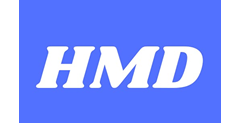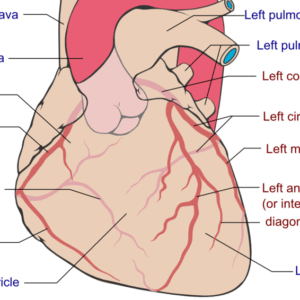Cardiology > Cardiology Medications
Cardiovascular Drugs
Background
Cardiovascular medications are a broad group of pharmacologic agents used to prevent, treat, or manage diseases of the heart and blood vessels. They target specific pathophysiologic mechanisms such as hypertension, arrhythmias, ischemic heart disease, heart failure, thromboembolism, and dyslipidemia.
These drugs reduce morbidity and mortality from cardiovascular disease, improve quality of life, and prevent complications such as myocardial infarction, stroke, and heart failure progression.
Classification/Types
1. Antihypertensives
Diuretics: Thiazides, loop diuretics, potassium-sparing diuretics.
Beta-blockers: Metoprolol, propranolol, carvedilol.
Calcium channel blockers (CCBs): Dihydropyridines (amlodipine) and non-dihydropyridines (verapamil, diltiazem).
ACE inhibitors: Lisinopril, enalapril.
ARBs: Losartan, valsartan.
Direct renin inhibitors: Aliskiren.
Vasodilators: Hydralazine, minoxidil.
2. Antiarrhythmics (Vaughan-Williams Classification)
Class I (Na⁺ channel blockers): Quinidine, lidocaine, flecainide.
Class II (Beta-blockers): Metoprolol, propranolol.
Class III (K⁺ channel blockers): Amiodarone, sotalol, dofetilide.
Class IV (Ca²⁺ channel blockers): Verapamil, diltiazem.
Others: Digoxin, adenosine, ivabradine.
3. Antianginal Agents
Nitrates: Nitroglycerin, isosorbide dinitrate.
Beta-blockers: Reduce myocardial oxygen demand.
CCBs: Relieve vasospasm and reduce afterload.
Ranolazine: Late sodium channel blocker for refractory angina.
4. Heart Failure Medications
ACE inhibitors/ARBs/ARNIs (sacubitril-valsartan).
Beta-blockers (carvedilol, bisoprolol, metoprolol succinate).
Mineralocorticoid receptor antagonists (spironolactone, eplerenone).
Loop diuretics for volume control.
SGLT2 inhibitors (dapagliflozin, empagliflozin) — mortality benefit in HFrEF.
Hydralazine + isosorbide dinitrate (especially in Black patients with HFrEF).
5. Antithrombotic Agents
Antiplatelets: Aspirin, clopidogrel, ticagrelor.
Anticoagulants: Warfarin, heparin, low molecular weight heparins, direct oral anticoagulants (apixaban, rivaroxaban, dabigatran).
Fibrinolytics: Alteplase, streptokinase (used in acute MI, massive PE, ischemic stroke).
6. Lipid-Lowering Agents
Statins (HMG-CoA reductase inhibitors): Atorvastatin, rosuvastatin.
Ezetimibe: Cholesterol absorption inhibitor.
PCSK9 inhibitors: Evolocumab, alirocumab.
Bile acid sequestrants: Cholestyramine.
Fibrates: Gemfibrozil, fenofibrate.
Niacin: Increases HDL.
Clinical Rationale
Cardiovascular medications are targeted at correcting or modifying the underlying pathophysiology:
Lowering blood pressure reduces vascular shear stress and end-organ damage.
Modulating heart rate and conduction stabilizes arrhythmias.
Vasodilation and improved myocardial oxygen supply relieve ischemia.
Neurohormonal blockade in heart failure reduces remodeling and progression.
Antithrombotic therapy prevents platelet aggregation and clot formation, lowering stroke and MI risk.
Lipid-lowering agents stabilize atherosclerotic plaques and prevent progression.
Indications
Hypertension (first-line: thiazides, ACE inhibitors/ARBs, CCBs).
Ischemic heart disease (beta-blockers, nitrates, antiplatelets, statins).
Heart failure with reduced ejection fraction (ARNI, beta-blockers, MRAs, SGLT2 inhibitors).
Arrhythmias (antiarrhythmics, rate control with beta-blockers/CCBs, anticoagulation for atrial fibrillation).
Thromboembolism prevention in AF, DVT, PE, mechanical valves.
Dyslipidemia and atherosclerotic cardiovascular disease prevention.
Contraindications
Beta-blockers: Severe asthma, acute decompensated HF, bradycardia.
ACE inhibitors/ARBs: Pregnancy, history of angioedema, bilateral renal artery stenosis.
Non-dihydropyridine CCBs: Severe LV dysfunction or AV block.
Anticoagulants: Active bleeding, severe bleeding diathesis.
Statins: Severe liver disease, pregnancy.
Physical Exam Findings Correlated
Vital Signs
Hypertension, tachycardia, or bradycardia guiding therapy initiation or adjustment.
General Appearance
Edema, fatigue, or dyspnea in heart failure patients indicating diuretic or neurohormonal blockade need.
Cardiovascular System
Irregular pulse suggesting atrial fibrillation (anticoagulation/antiarrhythmics).
Angina on exertion requiring nitrates, beta-blockers, or CCBs.
Neurological System
History of stroke or TIA guiding antiplatelet or anticoagulant use.
Advantages
Proven mortality reduction (statins, ACE inhibitors, beta-blockers, ICD therapy with drugs).
Improved quality of life (nitrates, diuretics).
Reduced hospitalizations in HF (ARNI, SGLT2 inhibitors).
Stroke and MI prevention with antithrombotics and lipid-lowering therapy.
Limitations
Polypharmacy burden in elderly patients.
Side effects limiting adherence (e.g., cough with ACE inhibitors, bleeding with anticoagulants, statin myopathy).
Variable response due to genetics, comorbidities, or drug interactions.
Cost barriers for newer agents (PCSK9 inhibitors, SGLT2 inhibitors, DOACs).
Complications
Hypotension, bradycardia, electrolyte disturbances with antihypertensives.
Proarrhythmia with certain antiarrhythmics.
Bleeding with anticoagulants and antiplatelets.
Myopathy, hepatotoxicity with statins.
Volume depletion, renal dysfunction with diuretics and RAAS inhibitors.
Follow-Up and Clinical Decision-Making
Regular monitoring: BP, HR, renal function, electrolytes, INR for warfarin, lipid panels.
Therapy adjustments: Based on efficacy, side effects, and comorbidities.
Multidrug regimens: Frequently required for comprehensive control of CV disease.
Patient education: Critical for adherence, especially with anticoagulation and lifestyle modifications.
Stay on top of medicine. Get connected. Crush the boards.
HMD is a beacon of medical education, committed to forging a global network of physicians, medical students, and allied healthcare professionals.

